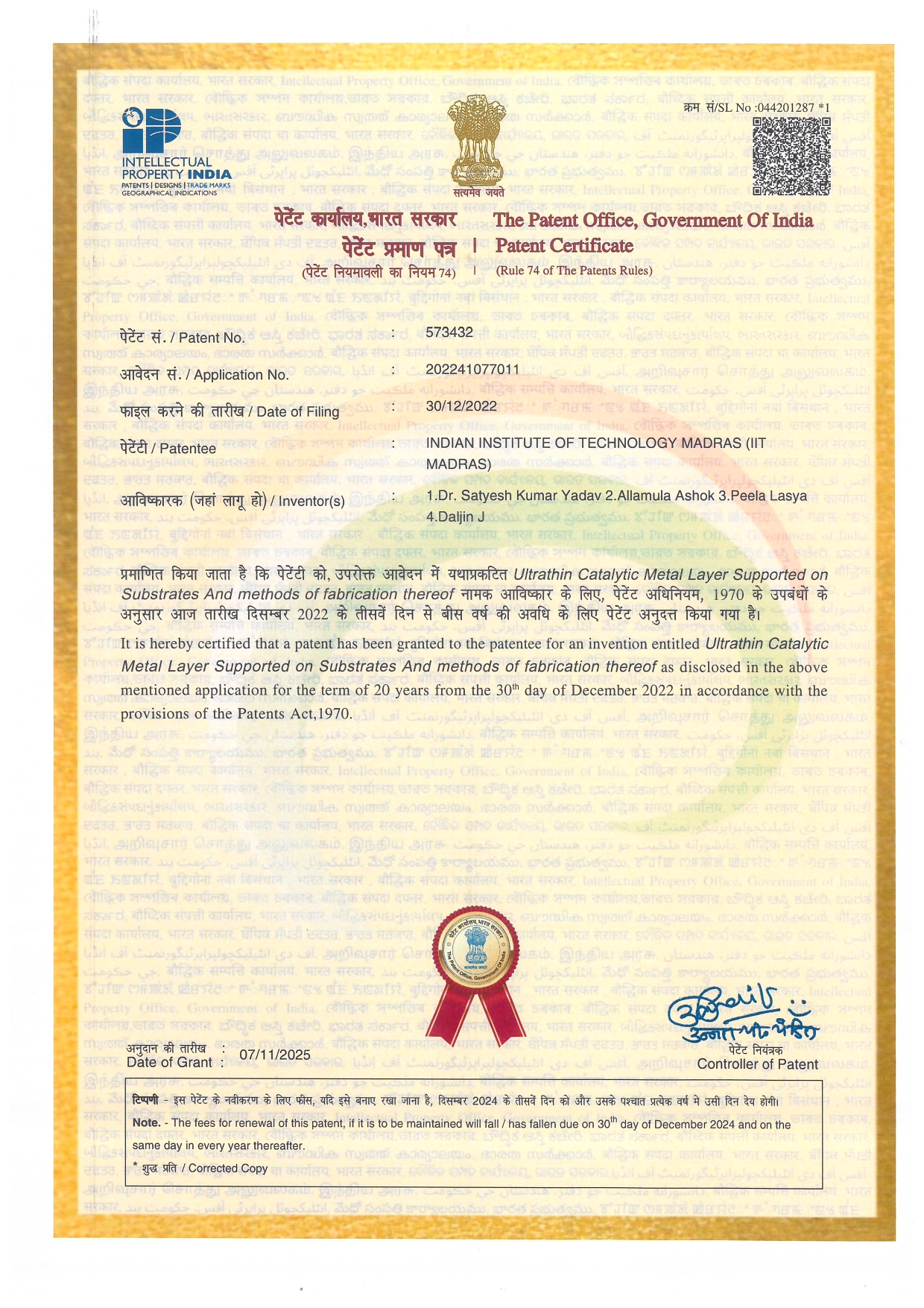The Department of Metallurgical and Materials was established in 1959 as the Department of Metallurgy. It was renamed the Department of Metallurgical and Materials Engineering in 2003. ...
Welcome to the Department of Metallurgical and Materials Engineering. We are one of the oldest departments of IIT Madras, established in the same year as the Institute in 1959. In the first few decades of its existence, then known as the Department of Metallurgy, the focus was more on industrial metallurgy. However, over the past few decades, the department changed to the Department of Metallurgical and Materials Engineering to adapt to the transformations and expectations woarldwide in diverse materials science and engineering areaas. Several faculty members of the department in recent times have taken the lead in establishing prospective centres of excellence in the areas of advanced/correlative microscopy, materials and manufacturing for futuristic mobility that includes additive manufacturing, ceramic technologies and surface engineering.

 Read our department magazine, Etch
Read our department magazine, Etch
8 December 2025
We are glad to share with you that Ms. Suvitha S. Kumar, a PhD student jointly guided by Prof. Tiju Thomas and Prof. Sreeram, has been selected for the Hindustan Unilever Limited (HUL) Women in STEM fellowship for Women PhD students, as part of HUL's CSR program, by which she will be supported with a fellowship equivalent to the PMRF scholarship. Congratulations and best wishes to Ms. Suvitha S Kumar and her supervisors, Prof. Tiju Thomas and Prof. Sreeram.

27 November 2025
We are happy to share the news that Prof. Murugaiyyan, along with co-inventors Prof. Srinivasan Chandrasekaran and the PhD student, Mr Thennavan from the Ocean Engineering Department are granted a patent for A functionally graded material (FGM) stiffened coped beam used in offshore and heavy industrial structures. Congratulations to Prof. Murugaiyyan, and I wish him more success.

8 November 2025
We are happy to share the news that Prof. Satyesh Yadav and his students Mr. Allamula Ashok, Mr. Daljin J, and Ms.Peela Lasya have been granted a patent for Ultrathin Catalytic Metal Layer Supported on Substrates and Methods of Fabrication Thereof. Hearty congratulations to Prof. Satyesh and his students and wish them more success in their future endeavours.
| Subject | Date |
|---|---|
| 09 December 2025 | |
| 14 November 2025 | |
| 26 May 2025 | |
| 22 April 2025 | |
| 12 December 2024 |